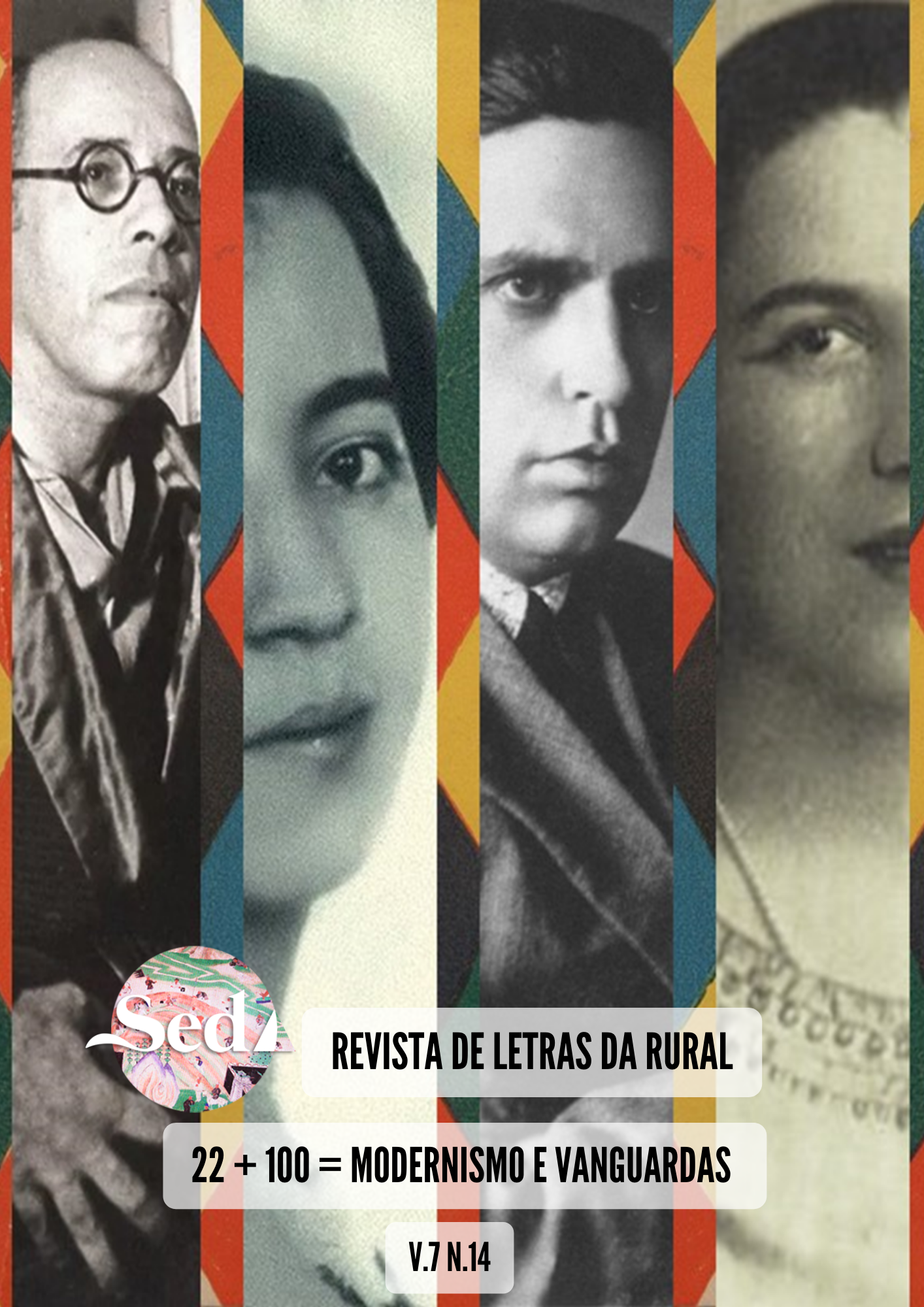"O Operário em Construção" (The Worker under Constrution) by Vinicius de Moraes: Poetry and Engagement in Brazilian Modernism
Abstract
The poem "O Operário em Construção (The Worker under Construction) (1955) by Vinicius de Moraes (1913-1980) can be taken as an example, in the work of Brazilian modernist poets, of national expression of Social Poetry, that is, that which emerged as a movement, between the 1950s and 1960s, pressured by the effects of the Spanish Civil War and characterized by intending to exercise some level of social function and contain a social commentary. In Brazil, social poetry had a political-economic-social-cultural space to express itself nationally in the immediate pre military coup, with the mass movement that organized itself around the basic reforms of the João Goulart government in experiences such as that of the Cadernos do Povo Brasileiro and its volumes dedicated to poetry (Violão de Rua) in which the first volume (of a total of three) brought the poem by Vinicius de Moraes. With a reluctant or hostile receptivity at the time it was made public, the poem remains little studied and generally confined to what was conventionally called populism in the politics and art of Brazil in the 1960s. In order to re-evaluate this poem, both as an object of appreciation (poetic work itself) and as an object of function (social poetry, engaged and of a precise historical moment), three perspectives will be used in this essay: (1) The poem will be evaluated in its affinities with the Social Poetry movement that was established in Europe; (2) In its affiliation to the pre-1964 moment of engaged art, especially in reference to the Violão de Rua (Street Guitar) experience; and (3) In its poetic singularity, taking into account the concrete and historical realization of this poem as an object with a specific function, as well as in its material basis, that is, the tension that is exerted in it between two elements, the signifier, which takes the words in their material reality and, secondly, time, understood as tensions between vibration and rest, noise and silence, pulse and pause that produce the rhythm or "musicality" of the poem.


